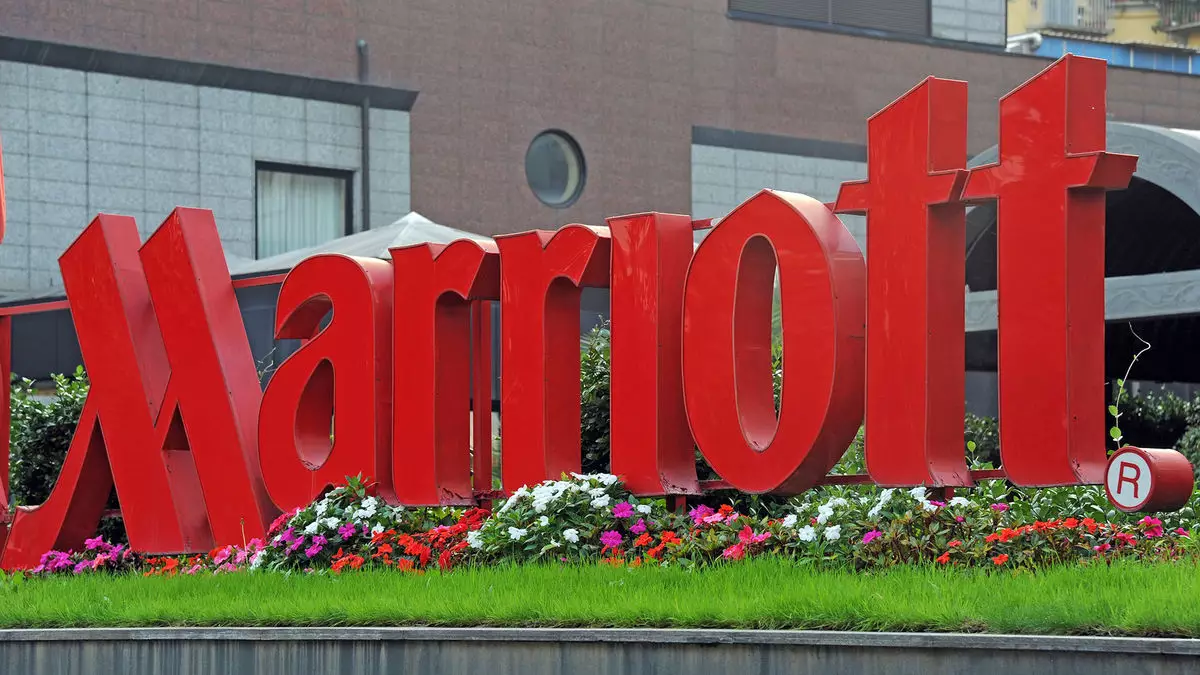The upcoming U.S. presidential election is poised to create unique challenges for the hospitality sector, particularly for key industry player Marriott International. Recent disclosures during Marriott’s Q3 earnings call reveal concerns about diminished fourth-quarter performance, driven by uncertainties related to the political climate. Marriott executives have indicated that the election could hinder revenue generation in a manner not seen in past electoral cycles, with the company’s performance metrics projected to decline significantly.
During the call, Chief Financial Officer Leeny Oberg expressed apprehension regarding the company’s revenue per available room (RevPAR) in the United States and Canada. Specifically, Marriott anticipates an approximate 3% decrease in RevPAR for November, largely attributed to “meaningfully lower transient and group room nights.” This anticipated downturn signifies a broader issue; the company expects a total fourth-quarter RevPAR decline of 1%, potentially indicative of voter-related disruptions that could dissuade travel and group gatherings in the lead-up to the election. This outlook is particularly sobering when compared to earlier election years, suggesting that the forthcoming electoral events may truly represent a paradigm shift in travel behavior.
One of the more concerning revelations from Marriott’s analysts was the impact on group business, which has historically been a strong revenue generator for the company. CEO Anthony Capuano noted that as of late September, group revenue growth was stagnant as a direct consequence of election-related uncertainties. Although there had been a notable 10% year-over-year growth in group RevPAR in the previous quarter, projections for the fourth quarter appear markedly less promising. The lack of growth in this vital sector underscores the uncertainty that often accompanies major political events, which can dampen corporate planning and decision-making around meetings and conferences.
Despite these setbacks, Capuano highlighted future growth projections, stating that group revenue for 2025 is poised to increase by 7%, buoyed by improvements in both room nights and average daily rates. This resilience suggests that while the present may be marred by external political factors, longer-term strategies may enable Marriott to navigate through these uncertainties effectively.
While much of the discussion focused on the negative impact of the election on group and transient business, it is essential to note the overall performance of Marriott’s segments. According to the report, average daily rates drove a 2% increase in RevPAR over the third quarter, despite flat leisure transient RevPAR. Capuano mentioned that leisure travel remained strong relative to pre-pandemic levels, indicating a potential divergence in consumer travel preferences. As business transient RevPAR rose by 2%, it becomes evident that business and leisure travelers are responding differently to ongoing economic conditions.
International markets tell a different story, with a 5% increase in RevPAR outside the United States. Particularly, regions in Europe, the Middle East, Africa, and Asia Pacific demonstrated robust performance, suggesting that while domestic challenges loom large, international operations may serve as a stabilizing force for the company. However, challenges persist in Greater China, which experienced an 8% decline in RevPAR due to macroeconomic pressures, weak domestic demand, and weather-related disruptions.
Marriott closed the third quarter with a net income of $584 million, alongside an impressive adjusted EBITDA growth of 8%, totaling $1.2 billion. These metrics highlight the company’s underlying strength but also underline the fragility introduced by external events such as elections. The juxtaposition of strong quarterly performance against the prospect of upcoming revenue setbacks reveals a complex landscape for Marriott, as it navigates both operational successes and looming external challenges.
While Marriott International demonstrates resilience through a mix of operational strength and strategic foresight for the long-term, immediate concerns around the U.S. presidential election pose significant threats to its fourth-quarter performance. The hospitality giant’s ability to adapt to this uncertain environment will be crucial in maintaining momentum and mitigating losses during this turbulent period.


Leave a Reply